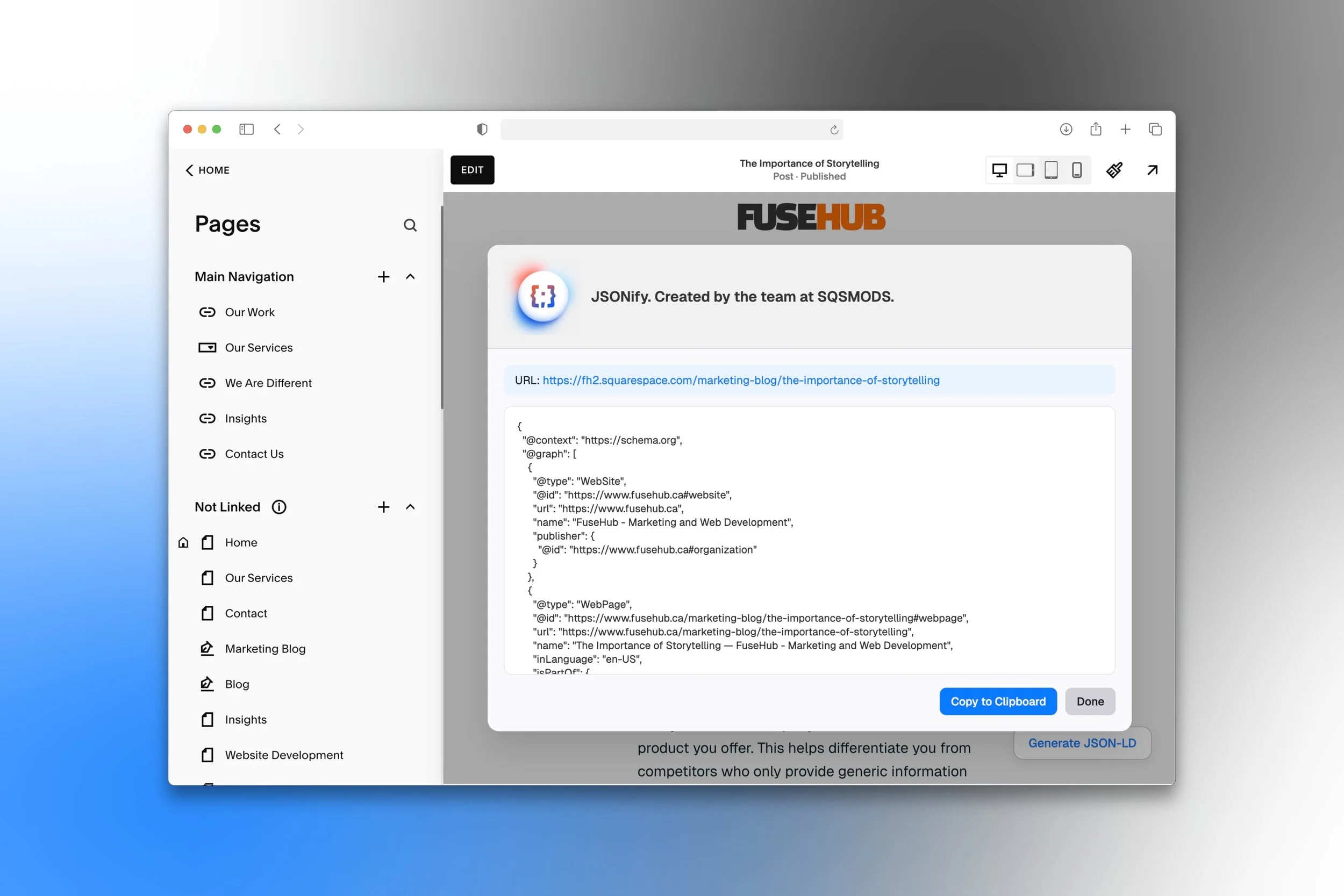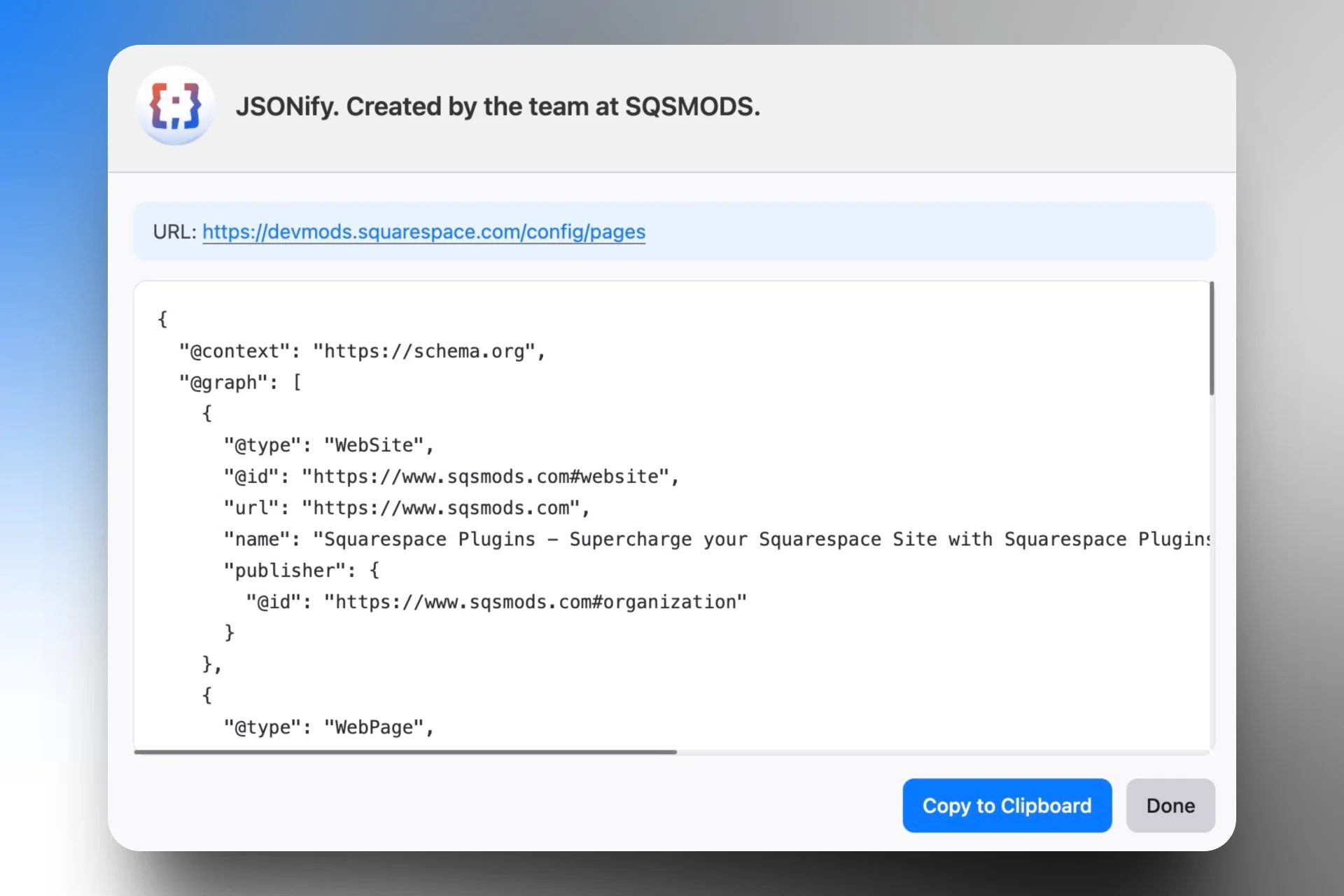JSONify:
Unlock the SEO Data Search Engines and AI Need
With the JSONify Chrome Extension, your Squarespace site is finally understood by major LLMs like ChatGPT, Gemini, Claude, Copilot, and by the more recent Google AI Mode.
One click reveals the hidden structured data (JSON-LD) they rely on.
How JSONify Works
Pick one of the subscription tiers
Head to the Chrome Web Store and add JSONify for Squarespace to your Chrome browser. Then, when clicked and prompted, sign in to the account you used to create a subscription.
Once installed, open your website in Edit mode, and you will notice a button with the label: Generate JSON-LD in the bottom right corner of your site
With one click, JSONify extracts the hidden structured data (JSON-LD) from that page. You’ll see a clean, readable version of what’s happening behind the scenes — and you can copy it instantly.
Paste the code into the Page Code Injection for that page. For blog posts, we recommend adding a code block at the bottom of your blog post and pasting the code there.
If you have the site linked to Google Search Console, ask it to reindex the site
If you want to validate if the JSON-LD is correctly added, you could visit this Schema Validator tool and view your result before you inject your JSON-LD. After you have injected the JSON-LD, run another test.
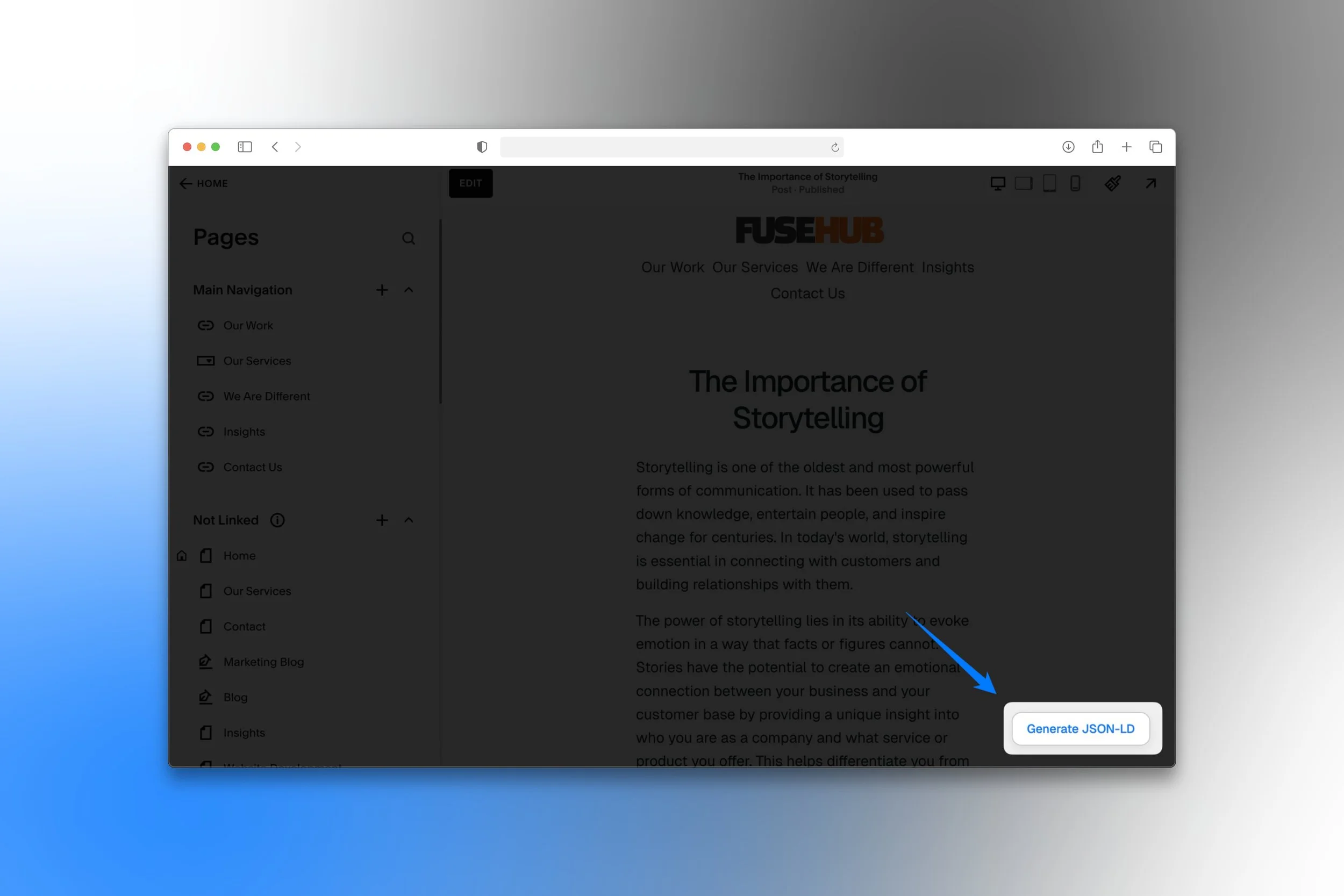
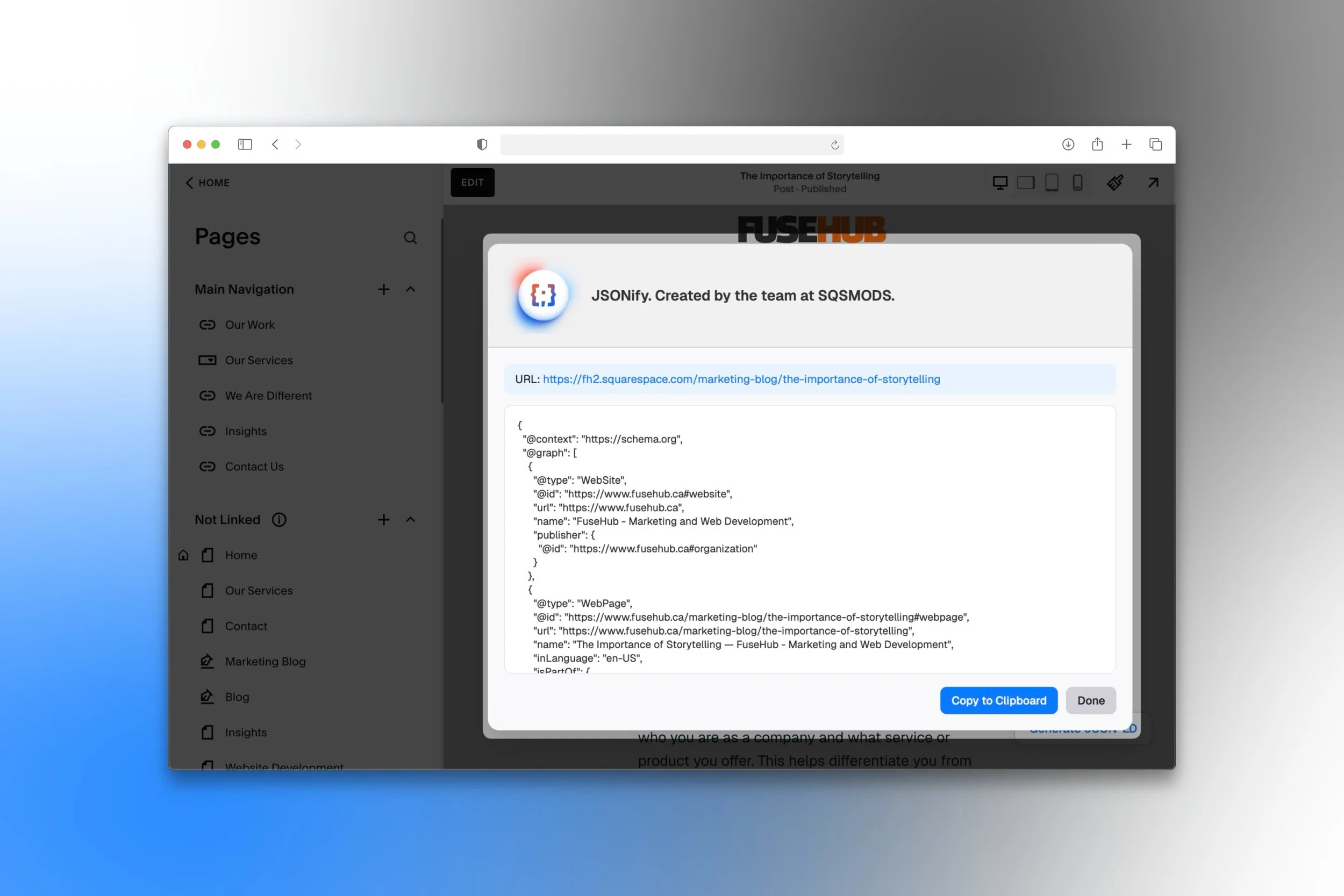
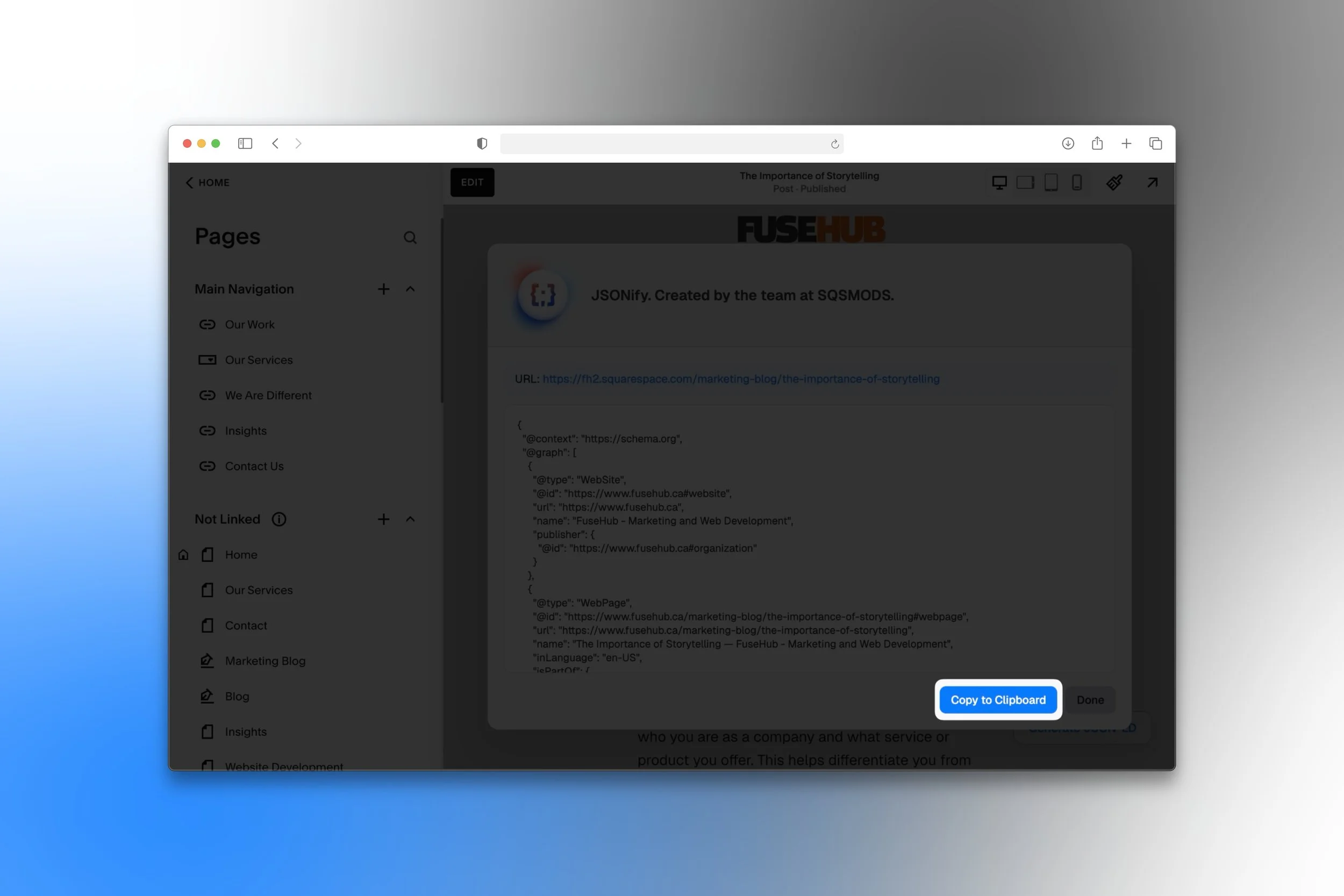
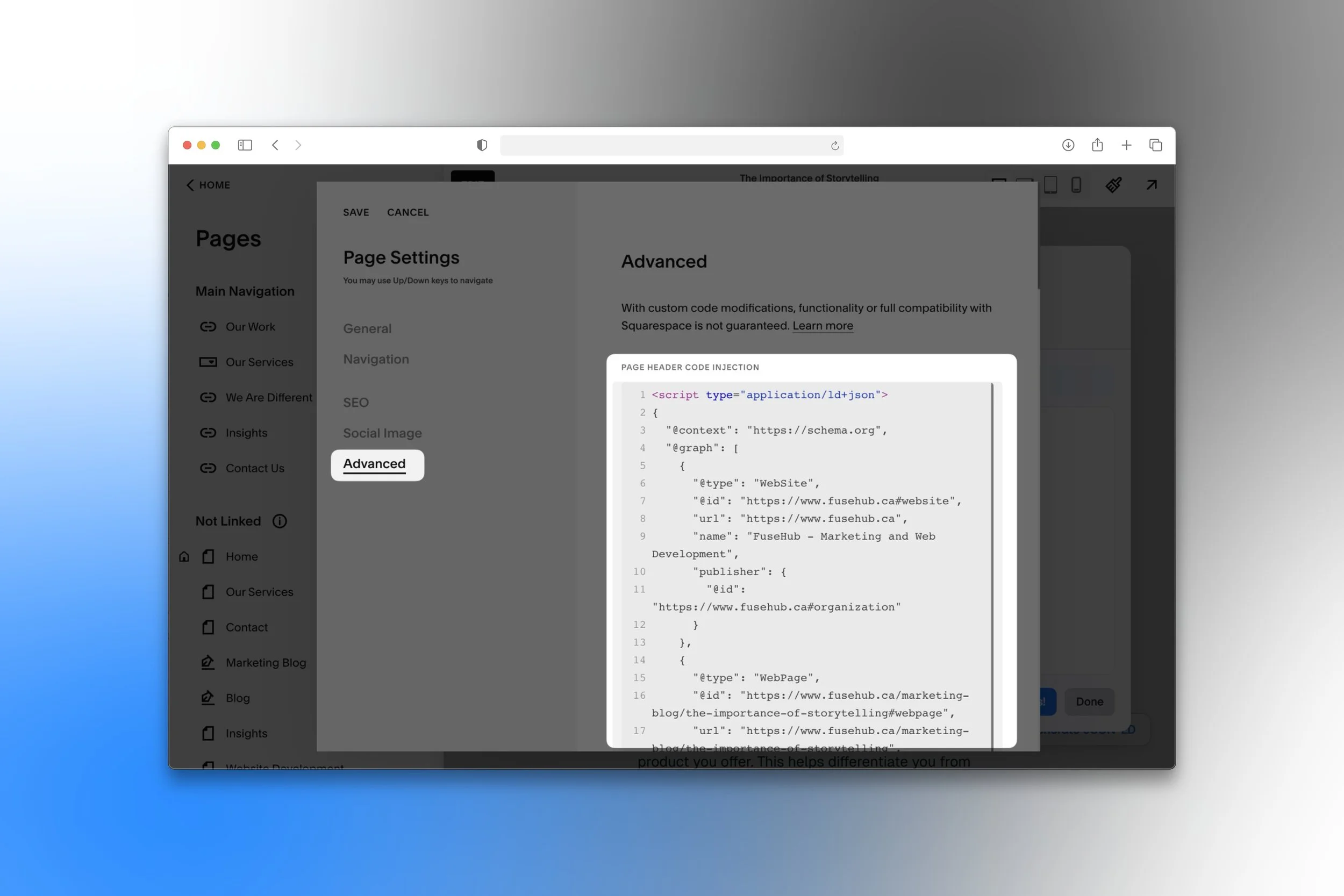
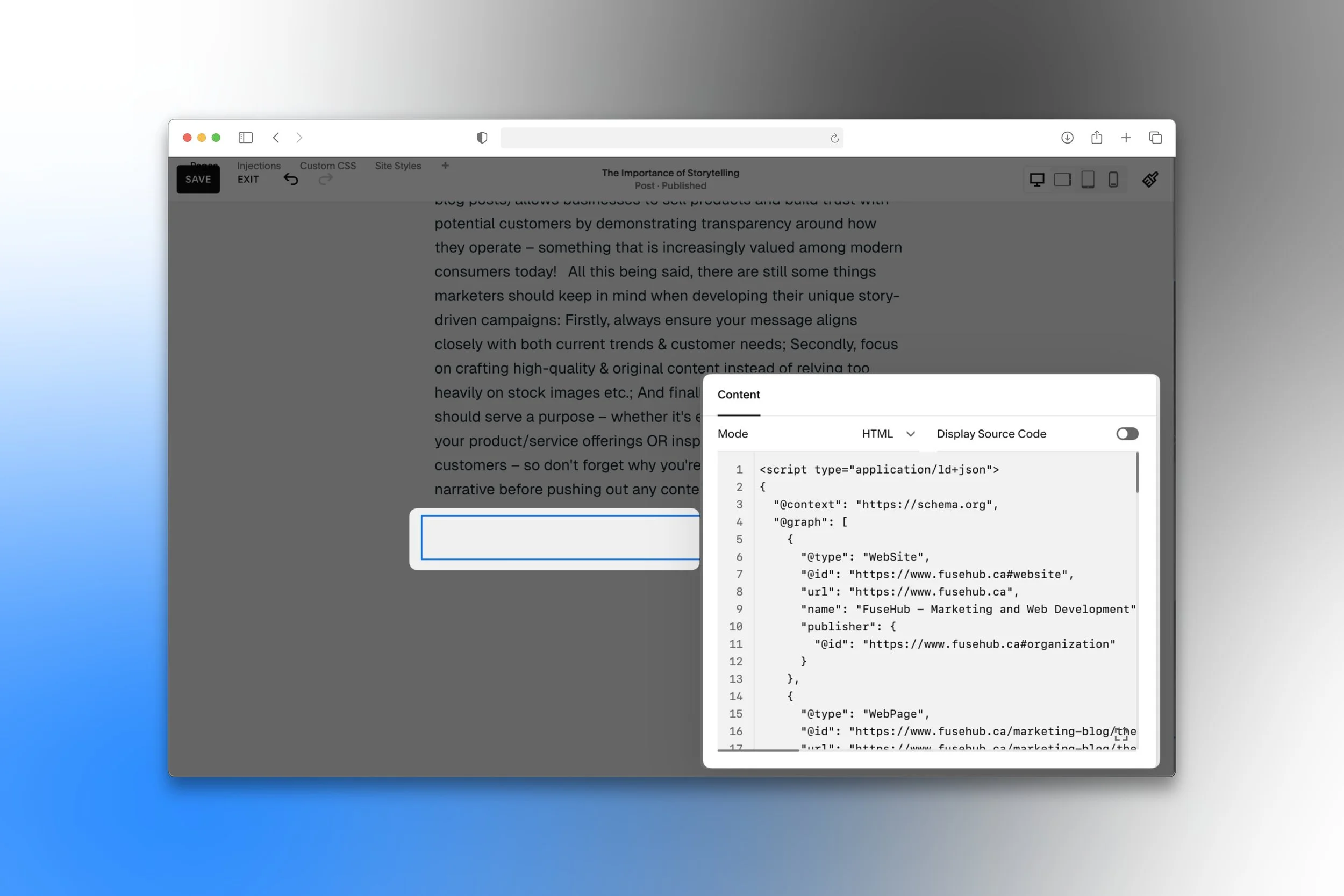
How Squarespace Stores Structured Data Behind the Scenes and How JSONify Unlocks It.
When you build a website on Squarespace, you’re constantly adding valuable details—your business name, contact information, product descriptions, event times, and SEO titles.
What most users don’t realize is that Squarespace does not make this information available as structured data (JSON-LD). Instead, it remains hidden from search engines and AI tools. That means platforms like Google, ChatGPT, or Gemini can’t fully understand or feature your content even though all the information is already there.
This is where JSONify makes a difference. JSONify allows you to scan your Squarespace site page by page, extract the hidden JSON-LD, and let you copy it with a single click. You can then paste it into the page’s Code Injection area or a code block for a blog post, instantly making your structured data visible and indexable.
The result? Search engines and large language models get the clarity they need to properly understand, feature, and rank your content, unlocking the SEO and visibility benefits you’ve already built into your site.
A Contact Page without and with JSON-LD injected
-
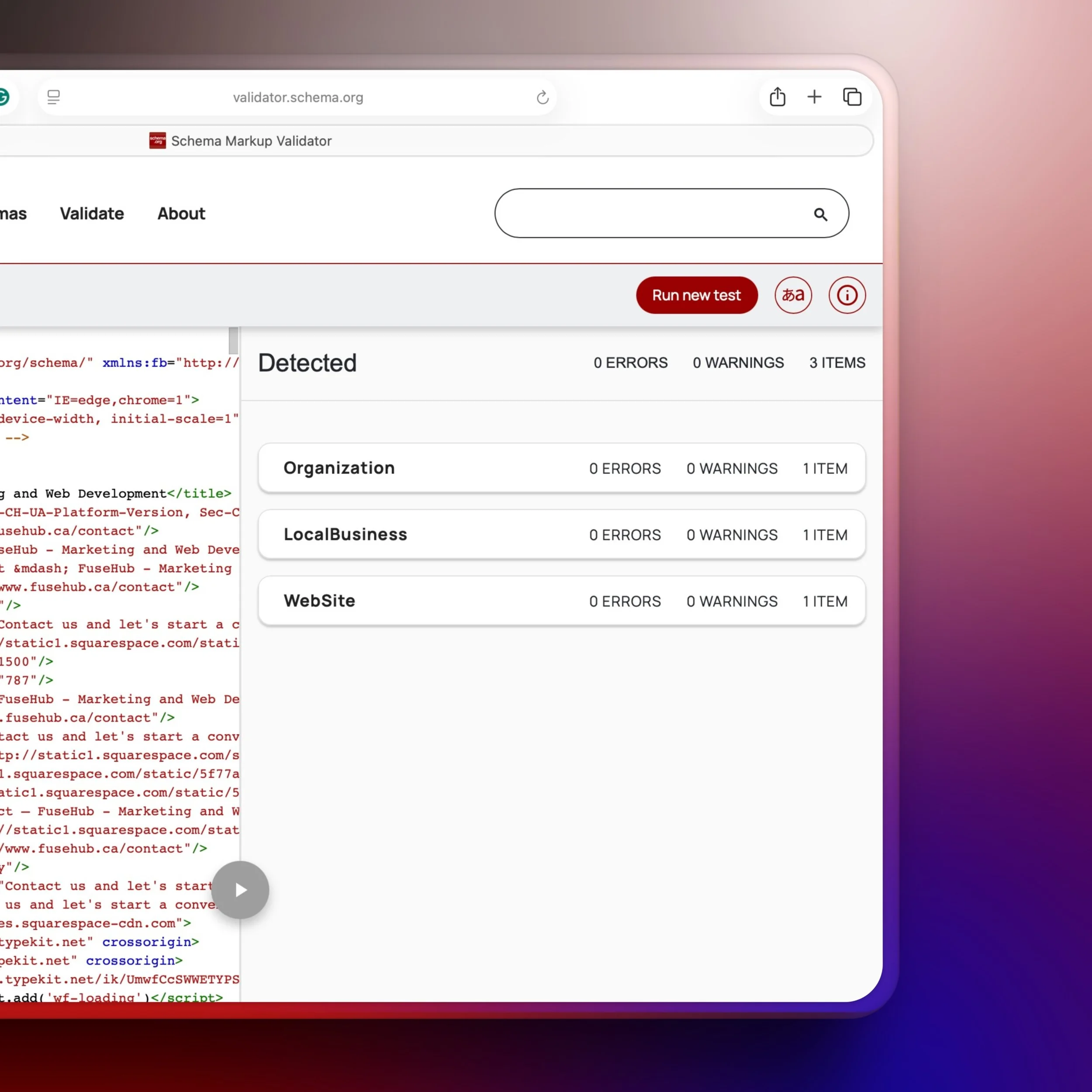
This is the version without JSON-LD injected.
It only shows the default schema that Squarespace provides (Organization, LocalBusiness, and WebSite)
-
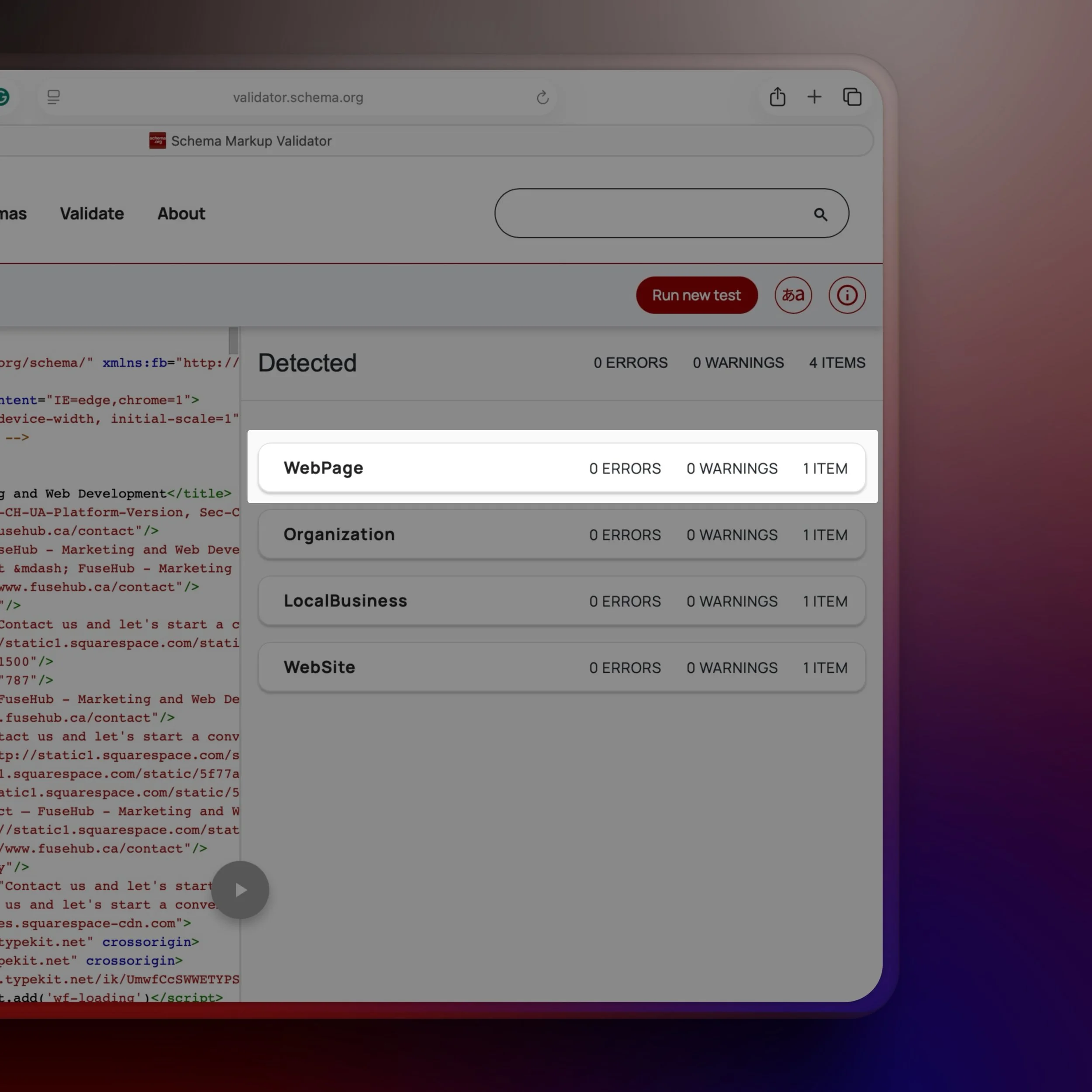
This is the version with your JSON-LD injected.
The extra WebPage entity is what’s coming from your injected structured data via JSONify.
Why the WebPage entity is important
-
1. Adds crucial page-level context
The WebPage type tells search engines this specific URL is its own page, distinct from just being part of the overall WebSite or the company Organization.
It lets you describe things like:• name / headline
• description
• primaryImageOfPage
• inLanguage
• breadcrumb relationshipsWithout WebPage, search engines only see the “site” and “business,” but don’t fully understand the intent of each page
-
2. Connects content to the business/website
A WebPage entity can reference both WebSite and Organization (using isPartOf or about).
That interlinking helps search engines build a graph of how your site → page → business → content all relate.
-
3. Unlocks rich result eligibility
Some Google features (like Sitelinks Search Box, FAQ snippets, HowTo, or specialized SERP enhancements) depend on having the WebPage entity properly set up.
Even if you’re already using Article, Product, or Event schema, those usually nest inside WebPage. That wrapper tells Google: “This content type lives here, on this specific page.”
-
4. Disambiguates “Contact Page,” “About Page,” etc.
Schema.org has subtypes like ContactPage, AboutPage, FAQPage, CollectionPage.
If you specify the right one, you can reinforce to Google that this is not just any page, but specifically a ContactPage — which aligns perfectly with your screenshot (/contact).
That helps Google show it as a contact result card or prioritize it when people search “Contact Company Name.”
We offer two subscriptions
Perfect if you want to try it out. Full access to JSONify with no long-term commitment. Cancel anytime.
Best value for active users. Save 20% compared to monthly, and stay optimized year-round for SEO and AI visibility.
What’s Next for JSONify
We built JSONify because we saw where things were heading: search is no longer just about Google, it’s about AI, context, and machine-readable content.
Our team is actively monitoring the evolution of platforms like ChatGPT, Gemini, and Perplexity and how they surface web content. As these tools change, we’re committed to evolving JSONify alongside them.
You won’t find empty promises or flashy roadmaps here, just a clear focus on staying aligned with where the internet and search are going. Our updates will be guided by fundamental shifts in AI search behaviour and structured data standards, not hype.
If you care about being seen in the age of AI, you’re in good company.
And keep in mind, we will be using this tool ourselves constantly as well.
A Deepdive:
What is Structured Data and why does it matter?
Structured data is how your website communicates with search engines and AI — not with fancy words, but with clean, machine-readable facts.
Think of it like this:
You build a beautiful Squarespace site, but behind the scenes, Google and AI tools like ChatGPT need help understanding what your content is. Is it a product? A service? A blog post? An event? Structured data tells them, clearly and accurately.
Here’s why that matters:
Better visibility in search results – Structured data powers rich results like star ratings, product info, event listings, and FAQs.
Essential for AI platforms – Tools like ChatGPT, Gemini, and Perplexity rely on structured data to decide what to feature and quote.
Higher click-through rates (CTR) – Rich, detailed listings catch more eyes than plain blue links.
Voice and visual search support – Smart assistants like Siri, Alexa, and Google Lens need structured data to deliver your content accurately.
If your site doesn’t include this data — or if it’s incomplete — you’re missing out on valuable traffic from both search engines and AI.
We’ve created an extensive blog post explaining this major shift in search

